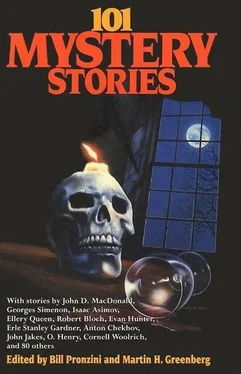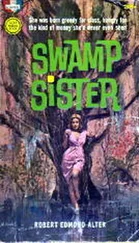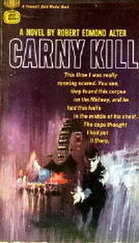Robert Alter - 101 Mystery Stories
Здесь есть возможность читать онлайн «Robert Alter - 101 Mystery Stories» весь текст электронной книги совершенно бесплатно (целиком полную версию без сокращений). В некоторых случаях можно слушать аудио, скачать через торрент в формате fb2 и присутствует краткое содержание. Город: New York, Год выпуска: 1986, ISBN: 1986, Издательство: Avenel Books, Жанр: Детектив, на английском языке. Описание произведения, (предисловие) а так же отзывы посетителей доступны на портале библиотеки ЛибКат.
- Название:101 Mystery Stories
- Автор:
- Издательство:Avenel Books
- Жанр:
- Год:1986
- Город:New York
- ISBN:978-0-517-60361-1
- Рейтинг книги:3 / 5. Голосов: 1
-
Избранное:Добавить в избранное
- Отзывы:
-
Ваша оценка:
- 60
- 1
- 2
- 3
- 4
- 5
101 Mystery Stories: краткое содержание, описание и аннотация
Предлагаем к чтению аннотацию, описание, краткое содержание или предисловие (зависит от того, что написал сам автор книги «101 Mystery Stories»). Если вы не нашли необходимую информацию о книге — напишите в комментариях, мы постараемся отыскать её.
101 Mystery Stories — читать онлайн бесплатно полную книгу (весь текст) целиком
Ниже представлен текст книги, разбитый по страницам. Система сохранения места последней прочитанной страницы, позволяет с удобством читать онлайн бесплатно книгу «101 Mystery Stories», без необходимости каждый раз заново искать на чём Вы остановились. Поставьте закладку, и сможете в любой момент перейти на страницу, на которой закончили чтение.
Интервал:
Закладка:
“How he handles it! We could be at war any minute now, and the President might be powerless to prevent a nuclear holocaust.”
Galvan sighed. “Mr. Harris, my business is power. I have made a career out of the skillful manipulation of monkeys. Don’t you see? I have in my hands now the greatest single power a man has ever had? I have the power to stop World War III, or to let it proceed.”
Harris rolled over on the bunk, sweating freely now. “That’s crazy talk! It couldn’t have gone that far yet.”
“No?” Galvan motioned to his secretary. “Turn on the speaker for the short-wave radio.”
The secretary vanished for a moment and then reappeared as a hidden wall speaker suddenly came to life. “... no further word. Meanwhile, the great Atlantic search continues. A hundred aircraft and two dozen ships have now converged on the general area in which the President’s plane went down. Some bits of wreckage have been sighted, but there is no trace of survivors at this hour. Meanwhile, in Washington, both houses of Congress have gone into an extraordinary all-night sessions to hear an urgent address by the new President. It is expected that the President will attempt to calm those who are calling for an immediate declaration of war with Russia. But on the basis of the presidential pilot’s last words before the crash, it is becoming obvious that the pressure of an aroused public could plunge the United States and Russia into war within another twenty-four hours. Moscow has denied all knowledge of the missing plane, but it is known that Russian fishing boats were in the vicinity. Now for a direct report from...”
“We’ve got to stop them,” Harris interrupted from the bunk. “We’ve got to—”
Galvan signaled the secretary to turn off the speaker. “You see, Mr. Harris, that is my problem. Should I stop them?”
For the first time he felt the fear — not only for the others, but for himself. “What do you mean? I can stop them if you won’t. You told them you’d rescued me.” Overhead somewhere, one of the search planes dipped low and then climbed again. It was the first one he’d heard. “You did tell them, didn’t you?”
Galvan blinked and stepped closer to the bunk. “We have told them nothing, Mr. Harris. The crew does not understand English. Only the three of us know you are here. There has been no radio communication with the searchers.”
The pilot slumped back on his pillow, knowing now, yet not quite knowing all of it. “What do you plan to do?”
“I have been in touch with bankers in London, Rome, Rio, and Paris. There is much to be said for letting the war — this long-postponed confrontation — take place at last. Your Presidents have been men of peace, and even the Russians have shown no eagerness for world conflict. An event like this, today, is needed to plunge the world into chaos.”
“You want that?”
“I do not know, Mr. Harris. It might be more profitable for me to buy and sell against the market, realizing that I could produce your evidence at the last possible moment—”
“But this is the last possible moment,” he told Galvan. “Once the first missile is launched, by either side, it will be too late.”
There was an insistent buzzing of a signal from somewhere, and the man in slacks went off to answer it, moving smoothly and silently out of view. When he returned, he spoke to Galvan in a language Harris couldn’t understand.
The small man grunted and turned back to the bunk. “An American ship has hailed us — a bit sooner than I expected. I must tell them about you now, or not at all.”
Looking up at Galvan, Harris already knew the decision. The owner of the yacht could not now allow him to live, to give even a hint to the waiting world of this fantastic conversation. “You’re mad,” he said, very quietly.
“Do you think those who are calling for war — do you think they are sane?”
“There’s no money in it for you if the whole world goes up in smoke.”
Galvan blinked and turned away. “Perhaps I am only tired of the indecision of it all.”
“Or mad with the power of this moment.” He waited no longer, but threw back the sheet and hurled himself across the cabin at the little man. He grabbed him by the neck and was tightening his grip on the wrinkled throat when the secretary drew a pistol and fired a single shot at close range.
Harris stumbled backward, seeing the two of them — the only two in the world who knew — suddenly tall above him, and he felt very tired as his life drained away. Again there came to him the unmistakable odor of melting, and he wondered if perhaps he was back in the dead plane, if all that went between had been but a drowning man’s dream...
Or was this the way the earth smelled, as it died?
96
Shell Game
William Jeffrey
Gloved hands thrust into the pockets of his heavy tweed overcoat, Steve Blanchard entered the Midwestern National Exchange Bank a few minutes before three P.M. on a snowy Friday in December. A uniformed guard stood near the maintenance doors with a ring of keys in his hand, his eyes cast upward to the clock on a side wall, and Blanchard’s steps echoed hollowly as he crossed the nearly-deserted lobby to the teller at window 4, the only one open at this late hour. He waited until a stout, gray-haired man had finished his transaction, and then moved up to the window.
A small bronze plaque positioned to the right indicated that the teller’s name was James Cox. He was a thin, relaxed young man with dark eyes and sand-colored hair. He smiled at Blanchard, said, “Yes, sir, may I help you?”
Blanchard took the folded piece of paper from his coat pocket and slid it across the marble counter. The second hand on the wall clock made two full sweeps, half of a third, and then Blanchard turned and strode quickly away without looking back.
He had just passed through the entrance doors, was letting them swing closed behind him, when Cox shouted, “Stop that man! He just robbed me, Sam. Stop him!”
Blanchard halted on the snow-covered sidewalk outside and turned, his angular face a mask of surprise. The guard, a fat, florid man with mild blue eyes, remained motionless for a moment; then, like an activated robot, he pulled the doors open, stepped out, and grasped Blanchard by the coat with his left hand, his right fumbling the service revolver off his hip.
“What the hell’s going on?” Blanchard asked.
The guard drew him roughly inside the bank, holding the revolver pressed tightly against Blanchard’s ribs. The near funereal silence of three o’clock closing had dissolved now into excited murmurings, the scrape of chairs, and the slap of shoes on the marble flooring as the bank’s employees surged away from their desks. Cox ran out from behind his teller’s window, and the president of the Midwestern National Exchange Bank, Allard Hoffman, was at his heels. The teller held a piece of paper clenched in the fingers of his right hand, and his eyes were wide and excited; Hoffman looked angrily officious.
“He held me up,” Cox said breathlessly as they reached Blanchard and the guard. “Every bill I had over a five.”
Blanchard gave his head a small, numb shake. “I don’t believe this,” he said. He stared at Cox. “What’s the matter with you? You know I didn’t try to hold you up.”
“Look in his overcoat pockets, Sam,” Cox said. “That’s where he put the money.”
“You’re crazy,” Blanchard said incredulously.
“Go ahead, Sam, look in his pockets,” Hoffman said.
The guard instructed Blanchard to turn around, and to keep his hands upraised. His eyes still wide with amazement, Blanchard obeyed. The guard patted his pockets, frowned, and then made a thorough, one-handed search. A moment later he stepped back, his forehead corrugated with bewilderment akin to that of Blanchard’s; in his hand he held a thin pigskin wallet and seven rolls of pennies, nickels and dimes.
Читать дальшеИнтервал:
Закладка:
Похожие книги на «101 Mystery Stories»
Представляем Вашему вниманию похожие книги на «101 Mystery Stories» списком для выбора. Мы отобрали схожую по названию и смыслу литературу в надежде предоставить читателям больше вариантов отыскать новые, интересные, ещё непрочитанные произведения.
Обсуждение, отзывы о книге «101 Mystery Stories» и просто собственные мнения читателей. Оставьте ваши комментарии, напишите, что Вы думаете о произведении, его смысле или главных героях. Укажите что конкретно понравилось, а что нет, и почему Вы так считаете.












